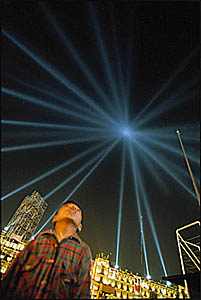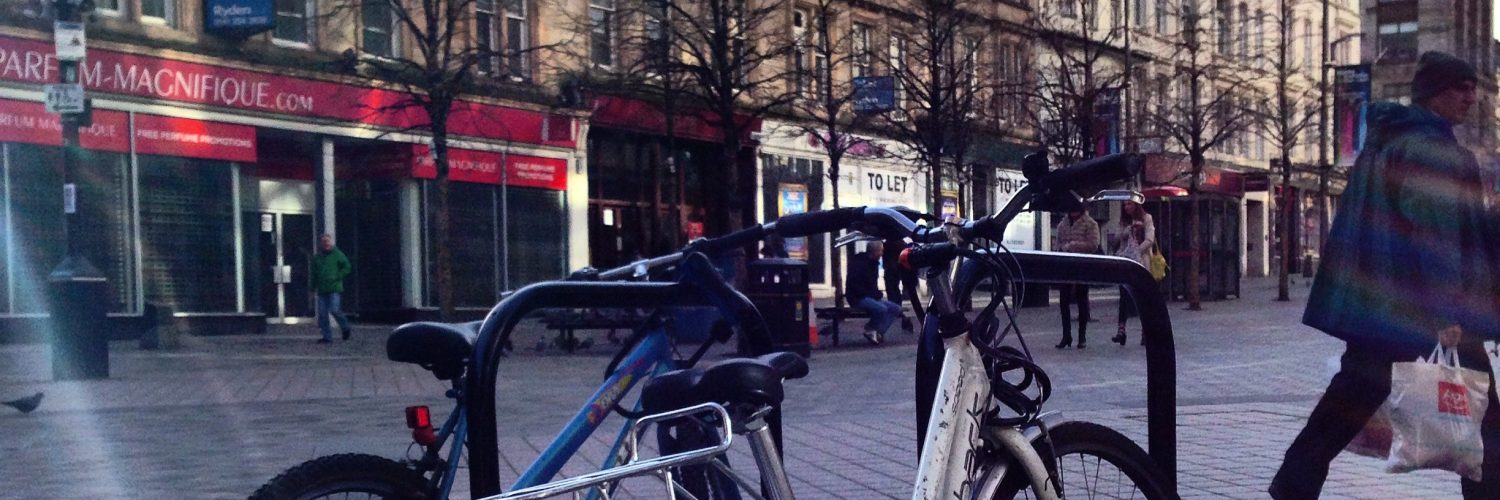Locative Media & The City

Rafael Lozano-Hemmer. Relational Architecture: Vectoral Elevation. (Internet visitors control spotlight positions over Mexico City)
O link do curso de Mark Shepard, Locative Media & The City (2006), propõe uma bibliografia básica e um mapa do tema com artigos disponíveis em pdf (texto e scanner) sobre assuntos diversos e interligados como os seguintes: The Metropolis and the Modern Subject; Social Space and the Public Sphere; Cognitive Mapping and Psychogeography; From Disciplinary to Control Societies; Site Specificity and Urban Intervention; Network Cities; Technology, Mediation and Urban Life; Ubiquitous Computing and the City; Locative Infrastructures; Participatory Networks; Pervasive Gaming.
Excerto da descrição do curso:
“Locative Media is an emerging field of media art and technology practices that incorporate location, data, mobile computing and wireless networks. This seminar focuses on Locative Media practices situated within urban environments and provides a critical context within which to evaluate their potential to transform how we locate and orient ourselves within, interact across, navigate through, and otherwise inhabit the contemporary city.(…)”
Technology and Locative Media
Aproveito para indicar outra referência, agora do “wiki media-culture” sobre a temática, Technologies – Locative Media. Vejam também meu artigo sobre o tema.
Abaixo trecho da definição:
“Locative Media n. describes a set of location-based technologies – wireless, surveillance, tracking and positioning technologies – that enable information to be tied to geographical space. These include Global Positioning Systems (GPS), mobile phones, wireless laptops, bluetooth, wireless networks and RFID (Radio Frequency Identification), WiFi1 and Global Systems for Mobile Communications (GSM); these enable people to locate themselves and others within geographical space, while also attaching information to geographical positions (by using the longitude and latitude received from the GPS device). Most modern mobile devices as well as having location aware capabilities are also able to access the Internet, allowing information to be stored and retrieved from remote databases. The mass proliferation of these technologies has rendered them almost ubiquitous. Locative Media n. names the field/s of practice coalescing around artists and technologists who use portable, networked, location-aware computing devices for user-led mapping, commercial location-based services and artistic interventions in which geographical space becomes it’s canvas.”
